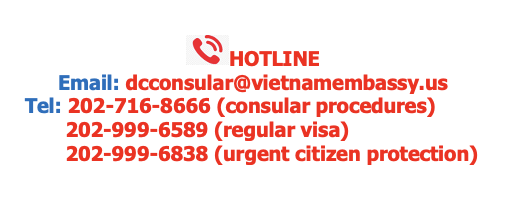Two-way trade: the BTA in action
Vietnam Investment Review - February 9, 2004
The US-Vietnam Trade Council last week released a report on the first two years of the US-Vietnam Bilateral Trade Agreement’s (BTA) implementation.
The 76-page report, ‘The US-Vietnam Bilateral Trade Agreement: A Survey of US Companies on Implementation Issues’, contains references to specific disciplines and provisions in the BTA, and analyses what Vietnam has accomplished to implement its commitments, what issues and challenges US companies continue to face, and recommendations for next steps to take, including issues that could be relevant to Vietnam’s WTO accession process.
“Without question, the first two years of the BTA have been tremendously successful for both countries,” said Virginia Foote, president of the US-Vietnam Trade Council.
“As we look forward, it is our hope that this report will assist in providing on-the-ground insight and help anticipate some of the situations that could arise with further implementation in order to ensure continued success.”
The report is based on extensive interviews which were conducted with close to 80 US companies over an eight week period in the summer of 2003.
Companies interviewed include those representing the manufacturing, pharmaceutical, distribution, insurance, financial, transportation, legal, and consulting service sectors, among others.
In general, companies have observed genuine efforts by Vietnam to ensure that new legal instruments comply with the BTA. They have also noted efforts to ensure that laws are promulgated in a way that is conducive to a more transparent legal regime, but also hoped that a more formal mechanism for public commentary on draft laws could eventually be established. Many felt that key to effective implementation was greater specificity in the legal provisions in order to eliminate opportunities for arbitrary interpretation of such laws, discretionary decision making, and opportunities for corrupt practices.
While recognising the enormity of tasks ahead, particularly in areas where mass education, systemic overhauls, and new infrastructure are needed, US companies hoped for further progress in areas that directly affected their day-to-day business operations. In particular, companies hoped for greater efficiency in customs operations and more effective risk-management strategies to improve trade facilitation.
Again, while recognising the challenges of effective enforcement, US companies hoped for stricter measures to enforce violations of copyright and trademarks, including clearer and more specific legal provisions, the establishment of higher penalties, and less burdensome procedures and lower thresholds for pursuing civil and criminal remedies.
While recognising that trading in services is fairly new to Vietnam, US service providers hope that legislation developed to tackle this important aspect of the economy addresses key issues such as national treatment, and fair and transparent licensing. They also noted that while prudential measures issued to regulate the service sectors were tremendously important, they hoped that these would not serve as barriers to entry that would negate any market access that they would otherwise receive under the BTA.
There continues to be much progress in the foreign investment regime. The government is currently considering several policy options such as those affecting land-use rights for collateral that, if implemented effectively, will greatly benefit the overall investment environment.
Overall, while companies interviewed found Vietnam to be a challenging place to do business, they did not view Vietnam as more difficult than other developing markets.
These companies tended to represent long-timers who know the system well enough and have developed a network of relationships that help them successfully navigate their day-to-day operations in Vietnam. However, newcomers continue to face challenges from the limited transparency and cumbersome procedures necessary to start up operations.
Companies noted the importance of continuing to attract new foreign direct investment in Vietnam and stressed the need for transparency and predictability in order for Vietnam to compete with its neighbours in the region.
Ten years after the post-war embargo by the US was lifted, and with the second anniversary of the US-Vietnam Bilateral Trade Agreement’s entry into force, there has been growing significance in US participation in Vietnam’s economy. As of last September, total year-to-date bilateral trade stood at $4.7 trillion. Comparisons made with pre-BTA statistics indicate that US exports to Vietnam and Vietnamese exports to the US for 2003 will have close to tripled. More than 100 US investments in the Vietnamese economy have a combined $1.4 billion in committed capital. With such increases in trade and investment activity, US companies look forward to continuing implementation of the BTA and to Vietnam’s accession to the WTO.
A new report on the implementation of the Vietnam-US Bilateral Trade Agreement over the last two years praises Vietnam’s efforts so far, but recognises the country has a long way to go before it truly becomes a global economic player. Tu Giang reports.



